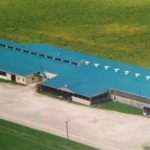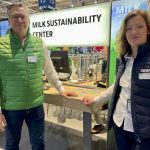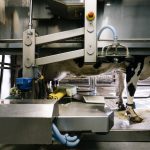Dairy

Extended colostrum feeding can improve calf health
Calves fed colostrum for up to 14 days after birth had better weight gain and reduced disease

First-of-its-kind cattle methane limiter approved for Canada
Enteric methane emissions from cattle contributes 3.3 per cent of Canada’s total GHG emissions

Udder health influences kid mortality, milk quality
A veterinarian reviews its importance and how producers can ensure udders stay healthy

Preventing lameness in dairy cattle
Experts weigh in on useful strategies

Hamel new leader of Dairy Farmers of Ontario
Murray Sherk retires as chair after 12 years on the board of directors

Paul Larmer – the retirement interview
The CEO of the Semex Alliance led the organization during 17 years of growth into a global entity still owned by Canadian dairy farmers

Ontario dairy start-ups win big in New York State
Winners receive mentorship and access to large herds as well as cash

Denfield Livestock Exchange gets new owners
The Middlesex County sales barn serves farms from surrounding counties

Milk data project brings field and barn numbers together
John Deere and DeLaval are the first partners in the Milk Sustainability Centre

How individual cow personalities affect milking performance in dairy cows
Research shows there is a link between cow behaviour and how they perform in automated milking systems
